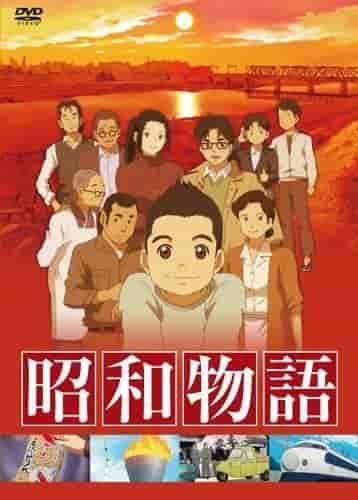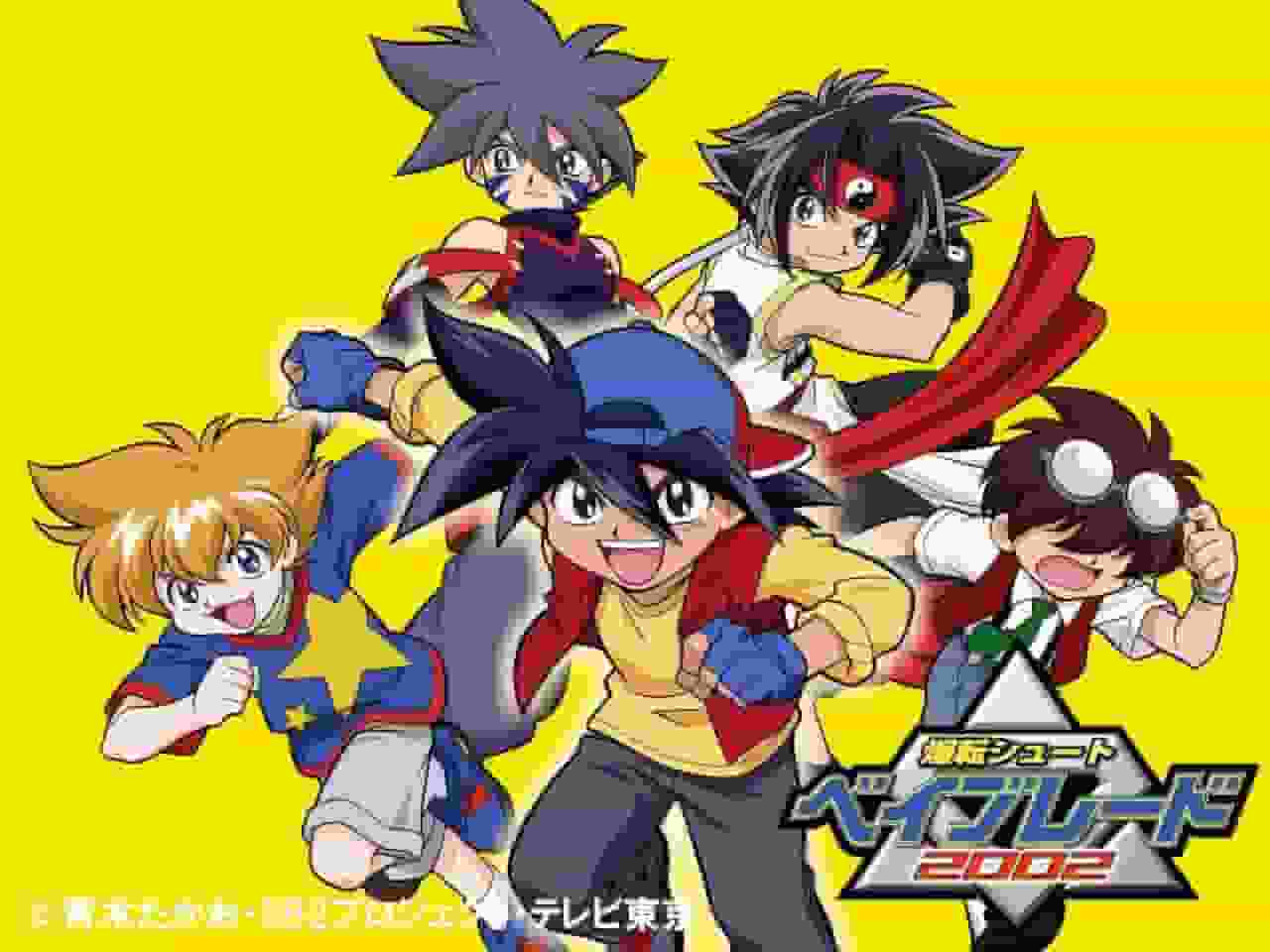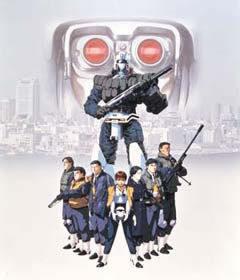Showa Monogatari: The appeal and reputation of anime depicting a nostalgic era

Showa Monogatari - Reviews and Recommendations■ Public Mediatheater ■ Original MediaAnime Original ■ Release dateJanuary 29, 2011 - January 1, 0000 ■Distribution companysink ■Frequencies100 min ■ Number of EpisodesEpisode 1 ■ Director Masahiro Murakami (film director, series director) ■ ProductionProduction company: WOW WORLD Production: Showa Animation Production Committee (Think, WOW WORLD, tvk, Teletama, Chiba TV, Mie TV, KBS Kyoto, Sun TV) ■ Story The Yamazaki family runs a small factory in Kamata, Ota Ward, Tokyo. The family consists of father Arizo, mother Kanoko, grandmother Yoshi, eldest son Taichi, a university student, eldest daughter Yuko, a high school student, and the protagonist, second son Kohei Yamazaki, a fifth-grader in elementary school. ■Explanation First of all, why “animation for adults” now? ■Cast・Yuko Yamazaki/Misato Fukuen/Kohei Yamazaki/Shoya Chiba/Taichi Yamazaki/Makoto Aoki/Yuzo Yamazaki/Yasuno Matsumoto/Kanoko Yamazaki/Sakiko Tamagawa/Yoshi Yamazaki/Naoko Kyoda/Goro Tashiro/Masaaki Tsukada/Ryo Takayanagi/Wataru Takagi/Yusuke Sawatari/Hiroyuki Yoshino ■ Main staff Scenario: Yasushi Hirano (Ultraman, City Hunter), Sukehiro Tomita (Sazae-san, Sailor Moon), Toshihisa Arakawa (Kamen Rider Kuuga, Sentai Series), Miho Maruo (Chibi Maruko-chan, Dragon Ball) ■ Main Characters・Yuko Yamazaki (17) ■ReviewShowa Monogatari is an animated film set in Kamata, Ota Ward, Tokyo in 1964, with the themes of family ties and Japanese craftsmanship. Although the film is primarily targeted at seniors, it can be enjoyed by a wide range of generations. Below, we will explain in detail the appeal and highlights of the film. The appeal of the storyThe story of Showa Monogatari revolves around the daily life of the Yamazaki family. The protagonist, Yamazaki Kohei, is a lively fifth grader who loves baseball and boys' manga. Various events in the family are depicted from his perspective. Family problems arise one after another, such as a big fight between father Arizo and eldest son Taichi at the start of the new year, eldest daughter Yuko on the verge of delinquency, and the factory being scammed by a regular customer. However, even in the midst of all this, the family's bonds are tested, and the process in which the family's feelings are ultimately united in the wake of the Tokyo Olympics is a moving one. Character AppealEach member of the Yamazaki family has their own unique personality, making it never boring to watch. In particular, the main character, Kohei, is portrayed as a lively boy who loves baseball. His actions and words bring brightness and liveliness to the story. Each family member also has a distinct character, such as the father, Arizo, a stubborn craftsman, the eldest daughter, Yuko, who has a bright personality, and the eldest son, Taichi, who is a science and technology university student. Furthermore, the people around them, such as employee Goro-san and the animator Yoshi-san next door, also add depth to the story. The appeal of video and musicShowa Monogatari faithfully recreates the scenes of 1964 using high-definition, high-quality animation. The cuts and dialogue are delivered slowly and in an easy-to-understand manner to make them easy for seniors to watch. The music has also been chosen to evoke the atmosphere of the Showa era, allowing viewers to feel the world of the story even more deeply. In particular, the music by Hayashi Weidang evokes nostalgia for the Showa era while also enhancing the moving story. Thematic DepthThe themes of Showa Monogatari are "family ties" and "Japanese craftsmanship." In modern society, it is said that the home and education sectors are collapsing. In this climate, the story depicts themes that encourage people to reaffirm family ties and reconsider relationships between people. It also depicts the craftsmanship spirit of the artisans who supported Japan's period of high economic growth, and is inspiring to see the craftsmen take pride in their work, believe in their skills, and take on new challenges. These themes will resonate with a wide range of generations, not just seniors. ■RecommendationShowa Monogatari is an animated film that is perfect for watching with the family. In particular, seniors and baby boomers will resonate with the story, which depicts nostalgic scenes from the Showa era and family ties. It will also be a good opportunity for the younger generation to learn about Japan's period of high economic growth and the craftsmanship of artisans. Furthermore, watching it with your family will help you reaffirm the bonds you have with each other and give you an opportunity to reconsider the relationships between people. Please watch it with your family and share the excitement and empathy. ■ Additional InformationShowa Monogatari was produced simultaneously as a 13-episode 30-minute TV series and a 100-minute feature film. The TV series was broadcast on tvk, Teletama, Chiba TV, Mie TV, KBS Kyoto, and Sun TV, while the feature film was shown in cinemas nationwide. DVDs and Blu-rays have also been released, so you can enjoy it at home. In addition, related books and merchandise are also available for sale, which is great news for fans. ■ Related worksThe following are some of the works related to the Showa Era:
■ SummaryShowa Monogatari is an animated film set in Kamata, Ota Ward, Tokyo in 1964, with the themes of family ties and Japanese manufacturing. While the main target audience is seniors, it is enjoyable for a wide range of generations. There are plenty of highlights to enjoy, including the story, characters, the appeal of the visuals and music, and the depth of the theme. Be sure to watch it with your family and share your emotions and empathy. Also, check out related works and enjoy the Showa era scenes and family ties. |
<<: The Whale's Yawn: A Thorough Analysis of the Charm and Emotion of Everyone's Songs
>>: Comparison review of "Yutori-chan" and "Tsumekomi-chan": Which one is right for you?
Recommend
The character trailer of "New Gods: Nezha Reborn" tells a different story of grievances among the gods
New Gods: Nezha Reborn, created by Light Chaser A...
The eye in the new poster of the live-action version of "The Lion King" is Mufasa
Disney's latest live-action version of "...
Magical Girl Lyrical Nanoha Reflection - Review of a masterpiece anime depicting a touching reunion and a new challenge
Magical Girl Lyrical Nanoha Reflection - Movie Re...
Yamada Takayuki transforms into legendary AV director "Naked Supervisor" releases latest stills
The Netflix series "Naked Director", st...
Chinese women's volleyball film "Win the Championship" released a new trailer and will be released ahead of schedule on September 25
Chen Kexin's film "Win the Championship&...
The appeal and reviews of "I'm an Otaku": A realistic portrayal of the daily life of an otaku
"I'm an Otaku": A masterpiece OVA d...
Studio Ghibli announces partnership with Lucasfilm
Studio Ghibli announced that it will cooperate wi...
"Please Save My Earth": Reassessing a moving sci-fi romance
"Please Save My Earth": A profound spir...
"Harry Potter" officially reveals how wizards solved urgent problems before using sewers?
Whether we really want to know or not, we now kno...
Japanese netizens are discussing the final boss of "One Piece" which is approaching the end. It is not one of the four emperors.
The extremely popular hot-blooded manga "One...
The classic manga "Akira" even predicted the 2020 epidemic?
The classic manga "Akira" is set in the...
"Wonder Woman 2" reveals photos of young Diana and Amazon warriors
Recently, the photos of young Diana and some Amaz...
The appeal and reviews of "Hyokkori Hyoutanjima": Rediscovering a nostalgic anime classic
"Hyokkori Hyoutanjima": A glimpse of fa...
"MIX" Review: A new story of baseball passion and youth
MIX - Mix - Appeal and Evaluation "MIX"...
"Avatar 2" resumed filming in New Zealand on the first day of the set photos exposed
According to foreign media IndieWire today (June ...









